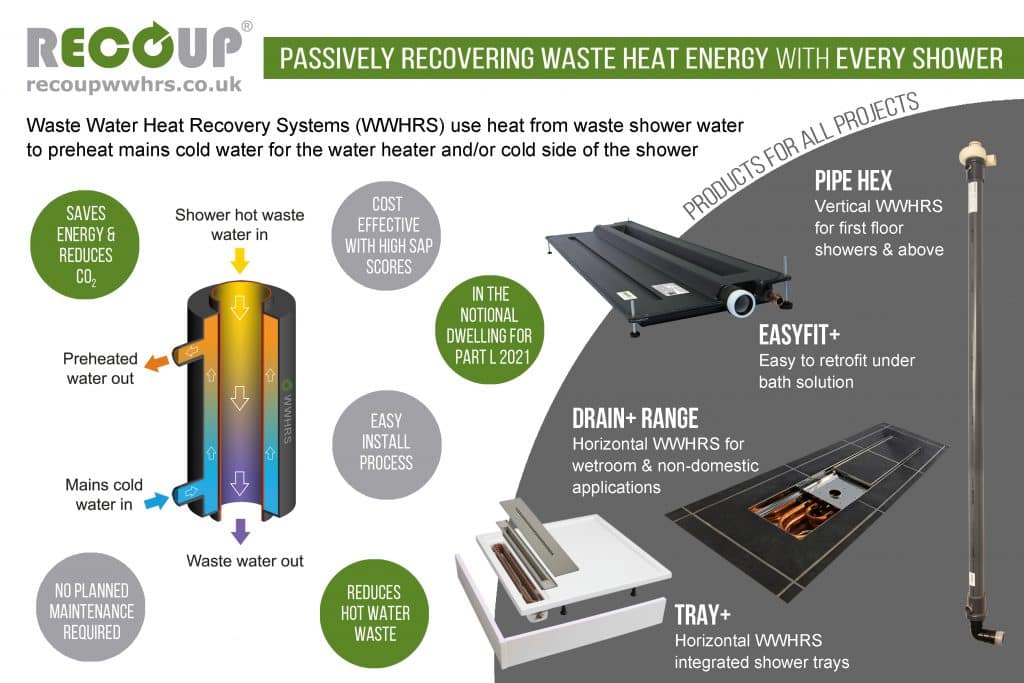Waste water heat recovery system for showers

Problem Addressed
Energy and carbon intensity associated with the production of domestic hot water. As buildings continue to meet higher fabric requirements, domestic hot water is set to become the largest user of energy in domestic buildings and many types of non-domestic buildings with showering accounting for up to 80% of domestic hot water use in certain cases, according to Recoup Energy Systems.
Case Study
A selection of case studies can be found here – https://recoupwwhrs.co.uk/case-studies/
Facts and Figures
This page presents data, evidence, and solutions that are provided by our partners and members and should therefore not be attributed to UKGBC. While we showcase these solutions for inspiration, to build consensus, and create momentum for climate action, UKGBC does not offer commercial endorsement of individual solutions. If you would like to quote something from this page, or more information, please contact our Communications team at media@ukgbc.org.
Related
Autonomous AI HVAC optimisation

Robotic installation of underfloor insulation

Smart radiator control

Assessment tool to help landlords design and implement retrofit programmes

